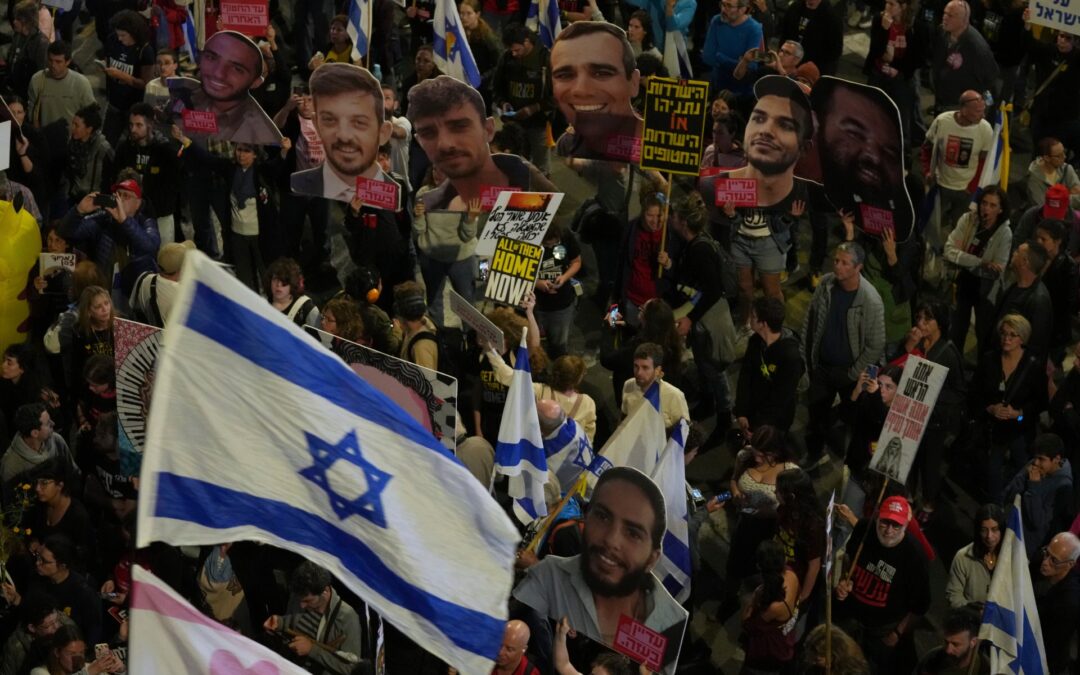To prioritize the release of captives in Gaza or continue fighting what critics are calling Prime Minister Benjamin Netanyahu’s “forever war” – that is the question increasingly dividing Israel.
Israel’s government, focused on achieving total victory against Hamas in Gaza, seems to be choosing the latter.
This decision has only intensified the criticism Netanyahu has faced since October 2023, initially for his government’s failure to prevent the October 7 attack, and then for the prolonged 19-month war and lack of a clear post-war vision for Gaza.
Netanyahu’s unilateral decision in March to end a ceasefire instead of pursuing an agreement that would have brought back the remaining captives has deepened the divisions within Israeli society, as doubts grow about the safe return of the captives from Gaza.
In recent weeks, there have been protests within military units against the government’s priorities.
This discontent has resonated with the public. Thousands of Israelis gathered outside the Ministry of Defence in Tel Aviv to protest against Netanyahu’s decision to mobilize an additional 60,000 reservists as part of his escalation against Gaza, where over 52,000 Palestinians, including women and children, have already been killed.
In mid-April, current and former members of the air force, an elite unit, released a letter criticizing the war as serving Netanyahu’s “political and personal interests” rather than security objectives.
This sentiment has also been echoed by members of the navy, other elite military units, and Mossad, Israel’s foreign security agency.
Political and personal interests
Critics accuse Netanyahu of using the war for personal gain, particularly to deflect attention from corruption charges he faces dating back to 2019 and other political failures. Allegations of payments received from Qatar have further fueled criticism.
By prolonging the war and pursuing total victory, Netanyahu aims to maintain his coalition with far-right parties, who insist on a decisive end to the conflict, even if it means extreme measures such as ethnic cleansing in Gaza.
There are concerns whether Netanyahu’s escalation in Gaza, including territorial occupation and population displacement, will resolve the conflict or trap Israel in a never-ending war that benefits the prime minister.
Colonel Seth Krummrich of Global Guardian warned of the challenges Israel may face in occupying Gaza and the impact on its society.
There are reports of reservists refusing duty due to exhaustion and the war’s indefinite nature, further highlighting the growing discontent and division within Israeli society.
Staying at home
Reports suggest a rise in reservists not showing up for duty, with many fatigued by repeated tours and lack of clarity on the war’s objectives. The Supreme Court’s ruling against the ultra-religious Haredi community’s military exemption has also added to the unrest.
The divide over priorities between Netanyahu and those advocating for the captives’ release has led to tensions within the government and society, exacerbating existing divides.
As the conflict continues, the toxic public discourse and divisions within Israeli society are deepening, posing a significant challenge to national unity and stability.

